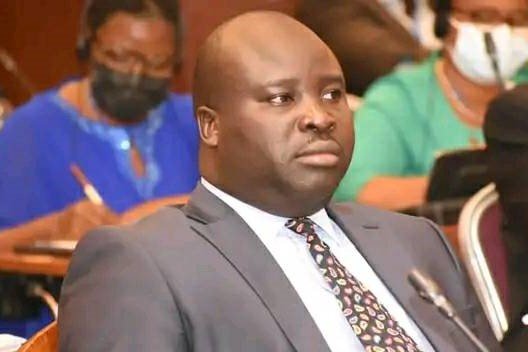By Matik Kueth
The Sudan People’s Liberation Movement/Army in Opposition (SPLM/A-IO) has warned that any attempt to change the current structure of the R-TGoNU or to take the First Vice President, Dr. Riek Machar, to court will be opposed at all costs.
In a statement, Oyet Nathaniel, Acting and Deputy Chairman of the SPLM/A-IO, reiterated the party’s unflinching commitment to maintaining the current leadership system.
“The SPLM-IO warns that any attempt to change the structure of the R-TGoNU, or replace the appointments therein, or drag the First Vice President and other political detainees to SPLM-IG courts, shall be rejected and resisted by all means at our disposal,” Nathaniel stated.
He expressed dissatisfaction with certain aspects of the recent action plans announced by Dr. Elia Lomuro, Minister of Cabinet Affairs, to accelerate the peace process, while also proposing the government’s recognition of an SPLM-IO faction and the restructuring of positions left vacant by detained members, and members of the group who fled the country for fear of detention.
Lomuro, who is also the rapporteur of the High-Level Standing Committee (HLSC), a body responsible for examining government agencies and peace procedures, claimed that the R-ARCSS cannot be held enclaved by internal party disagreements or rival armed factions.
He stated that the HLSC will soon announce which SPLM-IO factions will be authorized to continue implementing the peace deal.
Nathaniel acknowledged the potential for positive progression, stressing that, “The SPLM/SPLA-IO take note of the proposal for a ‘renewed dialogue’. This is a step in the right direction for the resolution of the outstanding violations and the restoration of the R-ARCSS and its implementation; to achieve sustainable peace and stability in the Country.”
However, the SPLM-IO is profoundly concerned about certain sections in the SPLM-IG’s strategic response, which they allege only help to exacerbate systematic R-ARCSS violations.
“The response seeks to only consolidate and legitimize the systematic violations of the political and security provisions of the R-ARCSS,” he explained, detailing the alarming developments that have caused unrest among their ranks.
He underlined significant violations, including the “arrest and detention of the First Vice President, the Chairman and Commander-in-Chief, and Members of the leadership of the SPLM/SPLA-IO,” which he characterized as not only acts of aggression but also a “declaration of war by the SSPDF.
The SPLM-IO Acting Chair asserted the resilience of the SPLM-IO’s leadership and military presence in the face of ongoing intimidation, stressing that, “The political and military leadership of the SPLM/SPLA-IO is intact, and the military wing remains under strict command and control, throughout the country.”
He further reaffirmed SPLM-IO’s call for the unconditional release of detained leaders, reiterating the party’s commitment to resolving South Sudan’s protracted conflict through dialogue and a return to the tenets of the peace agreement.
Meanwhile, in a press conference held on Saturday, April 26, Michael Makuei, Minister of Information and government’s spokesperson, emphasized the importance of replacing the SPLM-IO dockets in order for the transitional government to function effectively.
He pointed out that it is up to the SPLM-IO officials who remain in Juba to advise President Kiir to replace members who have fled the country.
The information minister also noted that the planned December 2026 election will not be obstructed.
He said the government is ready to go for the election with or without the permanent constitution if Chapter 2 of the peace agreement is implemented.
“There will be Phase II, now Phase I has already gone, but this time, we want to expedite Phase II by reviewing the agreement so that we reduce these stages,” Makuei stated.
Makuei explained that this time there will be no Cantonment site as the forces will be taken directly for training.
“We had never been standing against these arrangements, but of course, because the agreement was partly imposed on us. These are some of the provisions that we were against by then, and this is why it became difficult for us to implement it,” he said.
He added, “So, what we will do, we will. This time we will expedite the process, and we may decide to do without one of the phases, that is, the cantonment phase will no longer be there, but from the assembling directly to the training center.”



